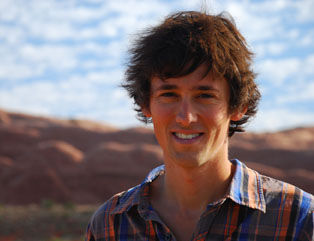Some information may be outdated.
After years of effort trying to negotiate with Rep. Rob Bishop on his Public Lands Initiative (PLI), we, like the rest of the conservation community, are saddened by the draft legislation’s failure to propose meaningful protection for our public lands. What was initially sold as a path toward resolution of disagreements on wilderness became little more than an anti-conservation, pro-extraction wish list.
The bill rolls back existing protections for lands deserving wilderness designation and carves out major loopholes in the meager wilderness it does propose. It completely fails the Bears Ears region, which has been recommended for protection by a historic coalition of tribes whose ties to the landscape stretch back to time immemorial. It establishes an energy policy that hands over public lands to the dirty fuels industry and would unleash a carbon bomb by emphasizing and expediting oil, gas, tar sands and oil shale development. And it shamelessly furthers the State of Utah’s land grab fever by giving away the heritage of all Americans.
The PLI didn’t go awry at the unveiling of the draft, though. It took an unfortunate turn down the wrong path many months ago.
No place better illustrates the failings of the PLI than Daggett County. In October 2014, we and our conservation partners joined Rep. Bishop, Gov. Gary Herbert, and Daggett County commissioners in announcing a landmark agreement that would serve as a model for the rest of the PLI. Through hard negotiations, all parties ultimately compromised and found common ground. We were cautiously optimistic. However, not long after the agreement was reached, one new Daggett County commissioner decided he didn’t care for the deal. Rep. Bishop gave him a veto and reneged on the agreement. That was the end of the story in Daggett County, and the effective end of the PLI. When Rep. Bishop granted the counties veto power over any agreements reached, there was simply no longer any motivation for those counties to negotiate with the conservation community.
But apparently not all counties are created equal. Here in Grand County, Rep. Bishop had little problem deviating from the county’s PLI recommendation to designate Survey Point, Mexico Point and Hideout Canyon as wilderness – effectively putting to rest the decades old Book Cliffs Highway debate. Adding insult to injury, Rep. Bishop now proposes to transfer land ownership in East Canyon to the State of Utah in order to fast-track development of this foolish dirty energy project. The message is loud and clear, counties have the final word – unless they happen to question the “drill, baby, drill” mentality that pervades Utah politics.
Let’s not forget that the Utah delegation has attempted to pass 13 wilderness bills over the years, all of them lacking the support of the greater conservation community. In every instance, those bills died a predictable death in Congress. Rep. Bishop’s PLI will meet the same fate. The bill lacks support from the conservation community, the outdoor industry and Native American tribes. To be clear, not everyone hates it. The bill has been lauded by the oil and gas industry, anti-wilderness county commissioners and a motorized recreation lobbying group.
Accepting the fact that the PLI has failed, the question becomes: Where do we go from here?
It’s quite tempting to throw up our hands and say the task is impossible. For all the rhetoric about compromise, only the conservation community was ever asked to make hard sacrifices. Real negotiation never happened in most counties. If the process were started anew, this time with true give and take and no unconditional county veto, we believe we could find agreement. We proved this in negotiations with Daggett County and Summit County, where we also reached an agreement. These agreements should be the first two components of a new bill.
The best places to build on Daggett and Summit are likely Grand and Emery counties, both of which put forward good-faith proposals. But these are just the start. More wilderness – real wilderness –is needed in both counties. Unfortunately, we never got the chance for real negotiations in either place.
One consequence of the PLI’s collapse is that President Obama will likely designate the Bears Ears National Monument, as requested by the Navajo, Hopi, Zuni, Northern Ute, and Uintah and Ouray Ute nations. Rep. Bishop has known that a one-sided proposal on his part would force the president to act. Now that the PLI has failed, we hope that President Obama will move quickly to protect this remarkable place.
When President Obama designates the Bears Ears National Monument, Utah’s politicians will have a choice. They can feign surprise and parrot the worn diatribes of the past, or they can celebrate with the two-thirds of Utahns who already support the idea.
Rep. Bishop should take note. The best path forward is not to push a doomed PLI, igniting a bruising battle that will stymie progress for years. The best path forward is to swallow some pride and acknowledge that it didn’t work, but that it could work on a level playing field where no one holds a veto and everyone is expected to compromise.
Neal Clark is a field attorney with the Southern Utah Wilderness Alliance. He lives in Moab.
Appreciate the coverage? Help keep local news alive.
Chip in to support the Moab Sun News.



